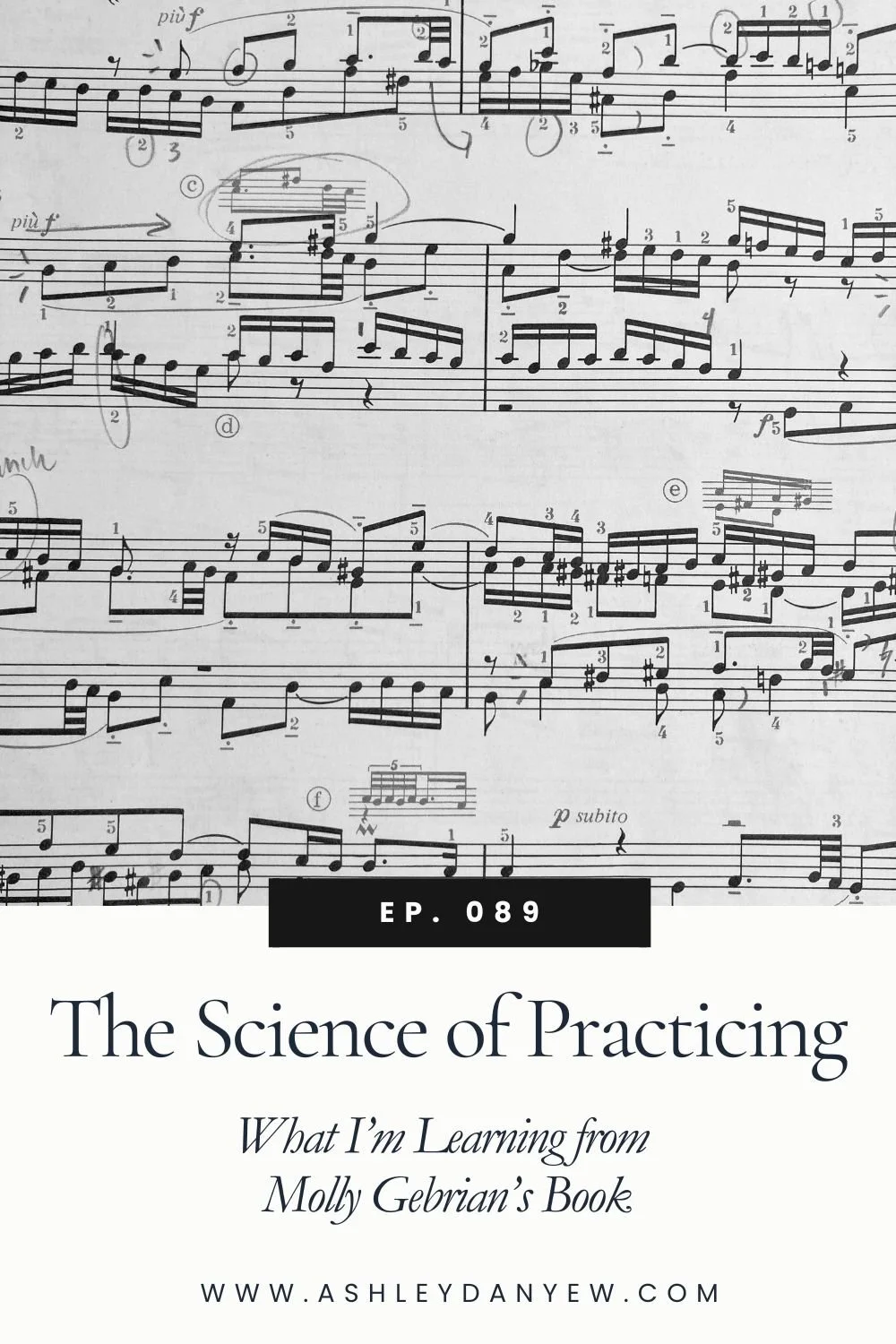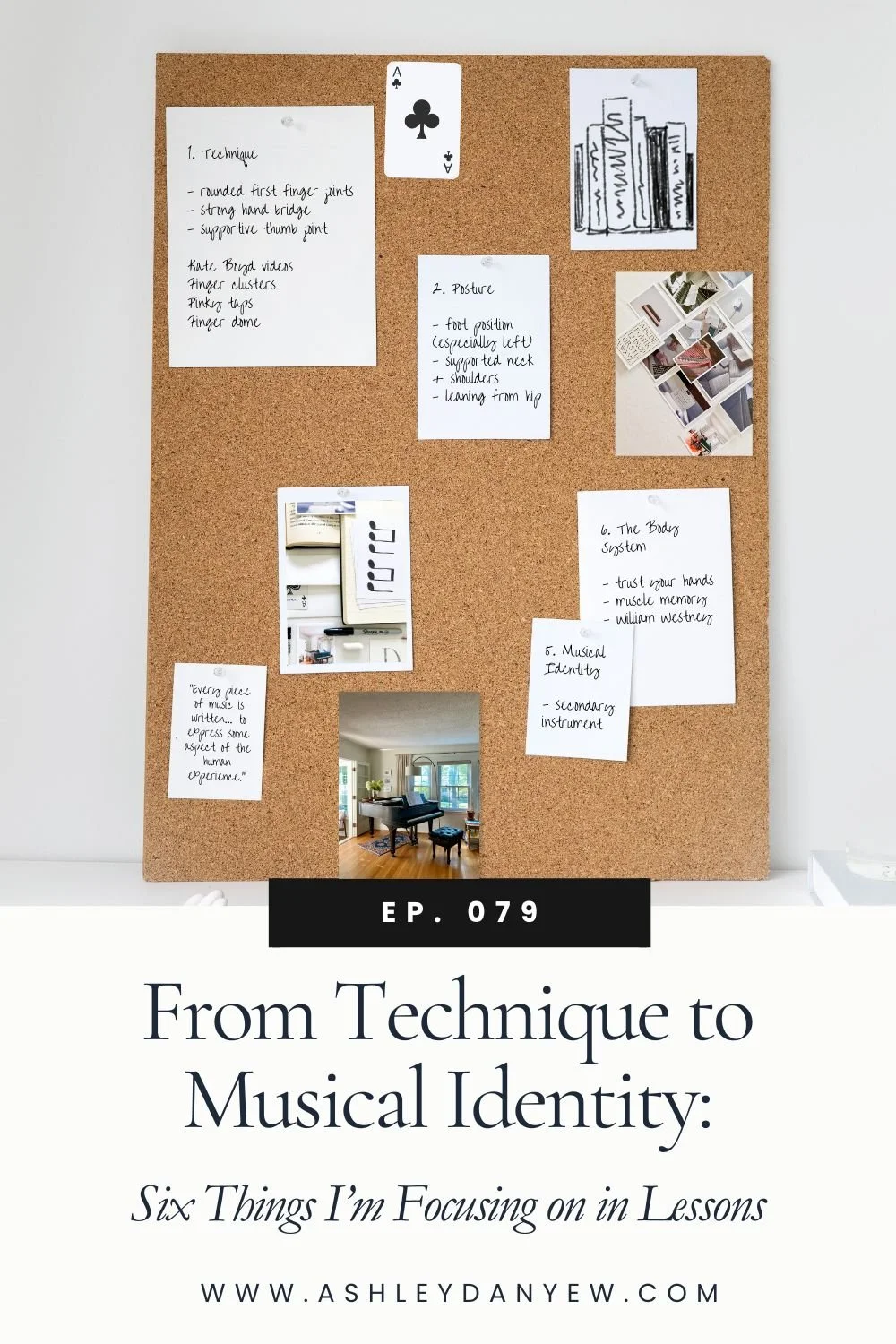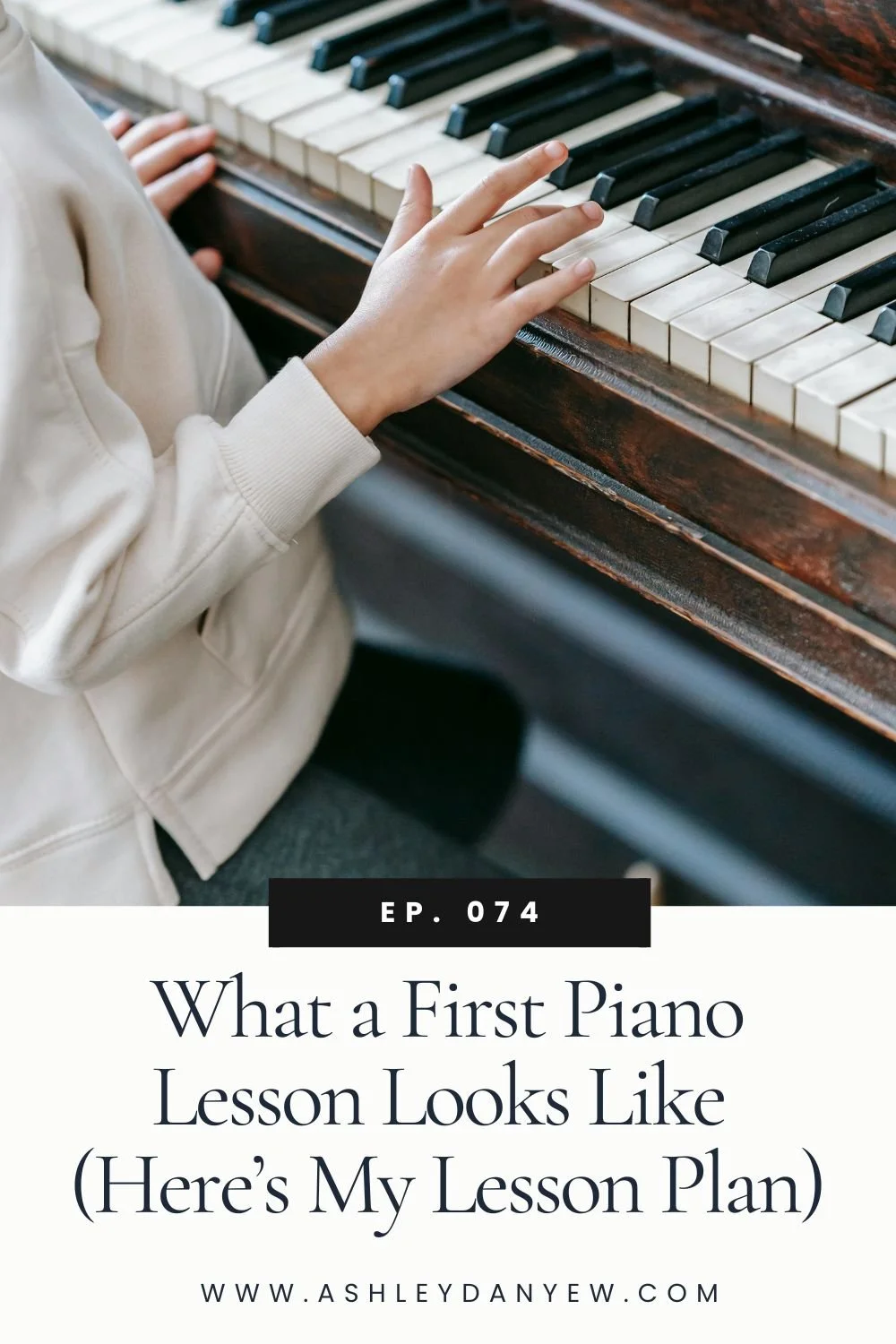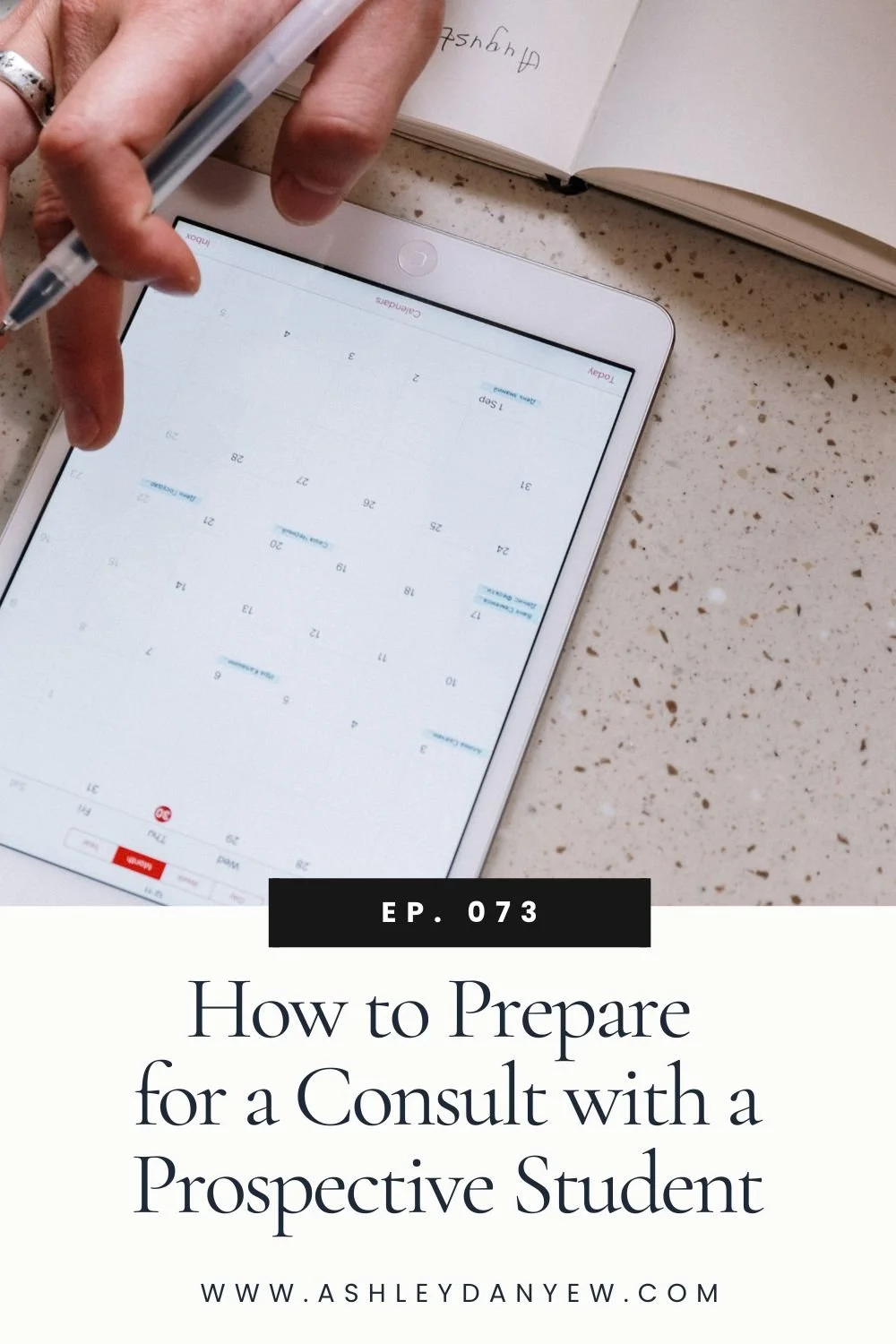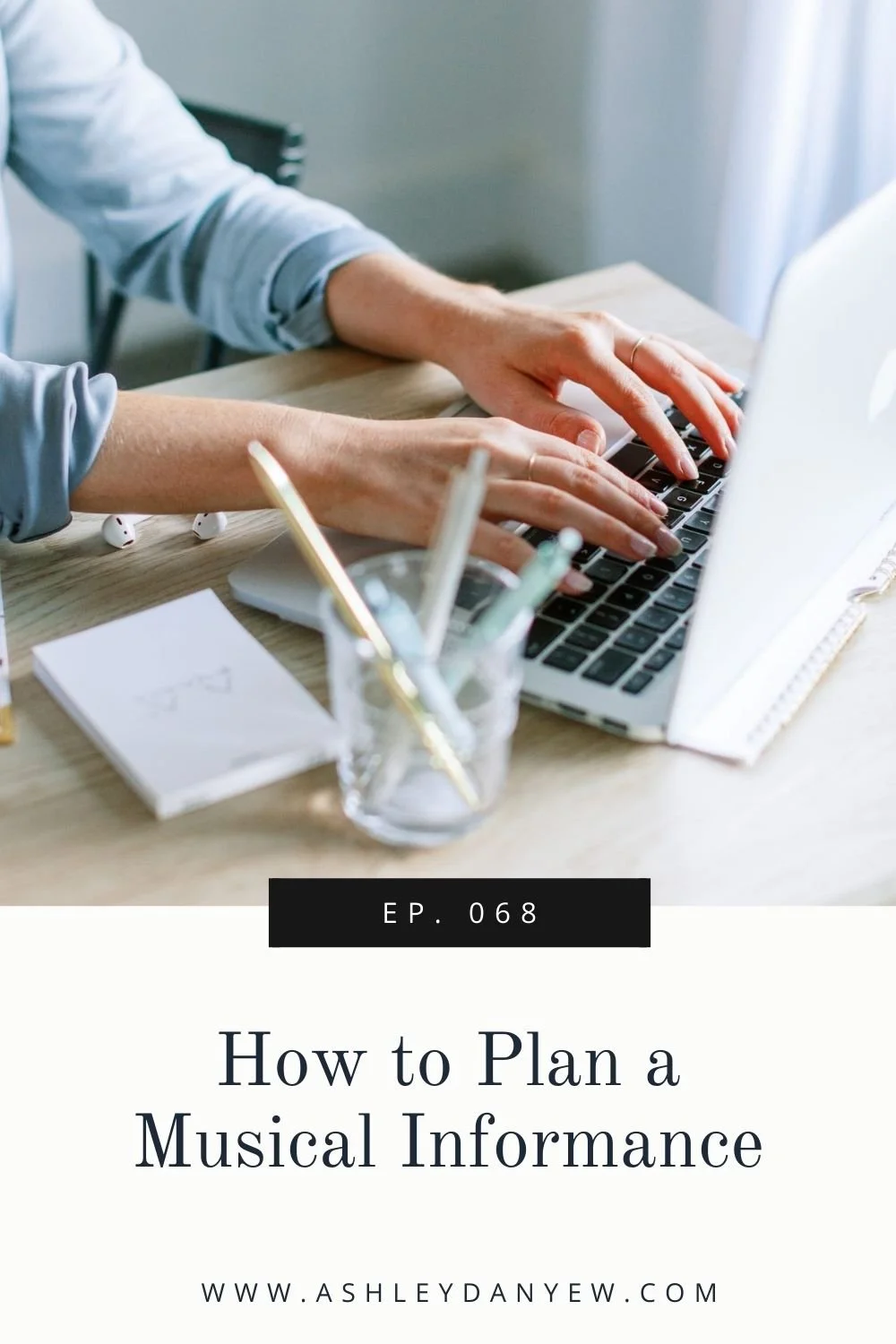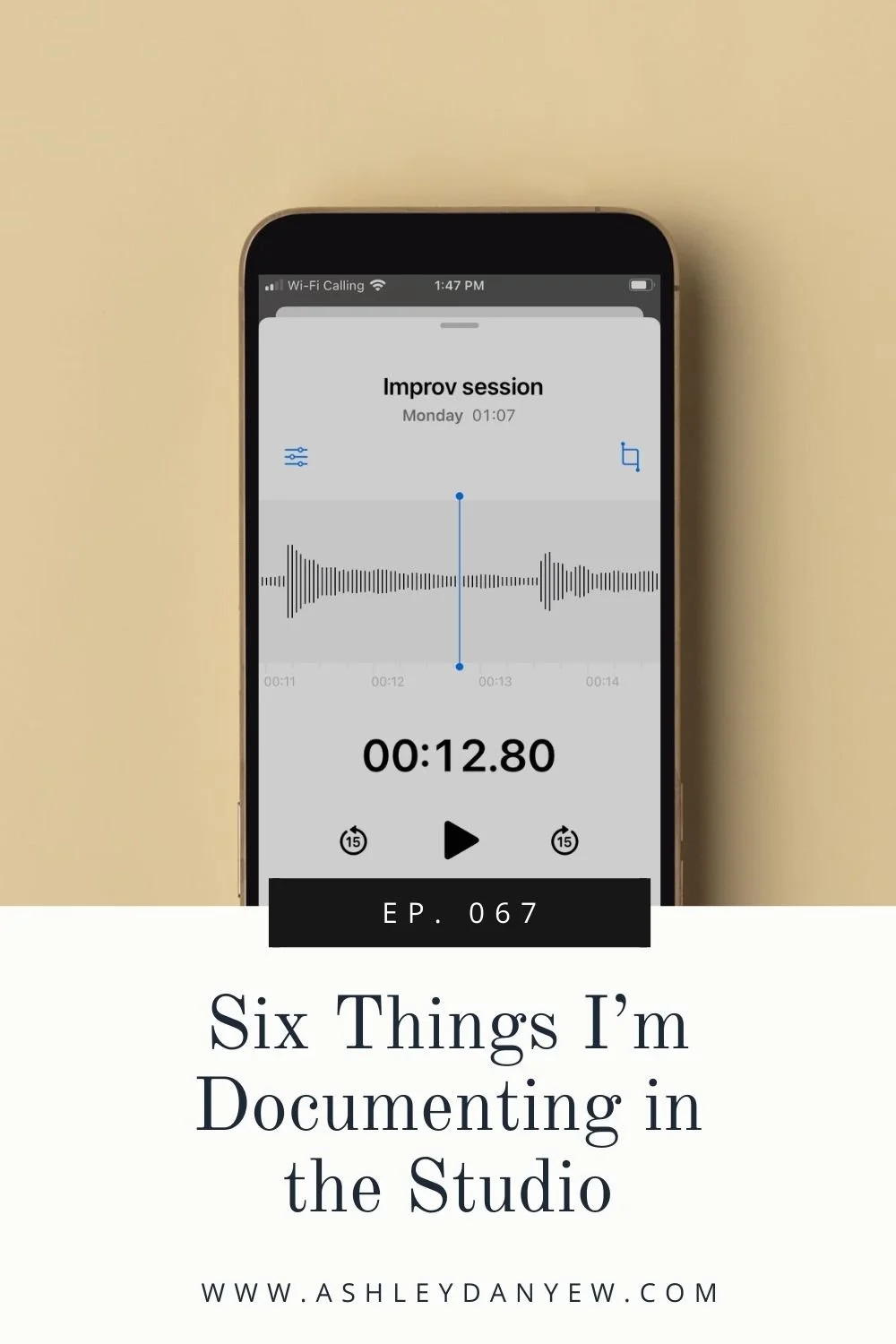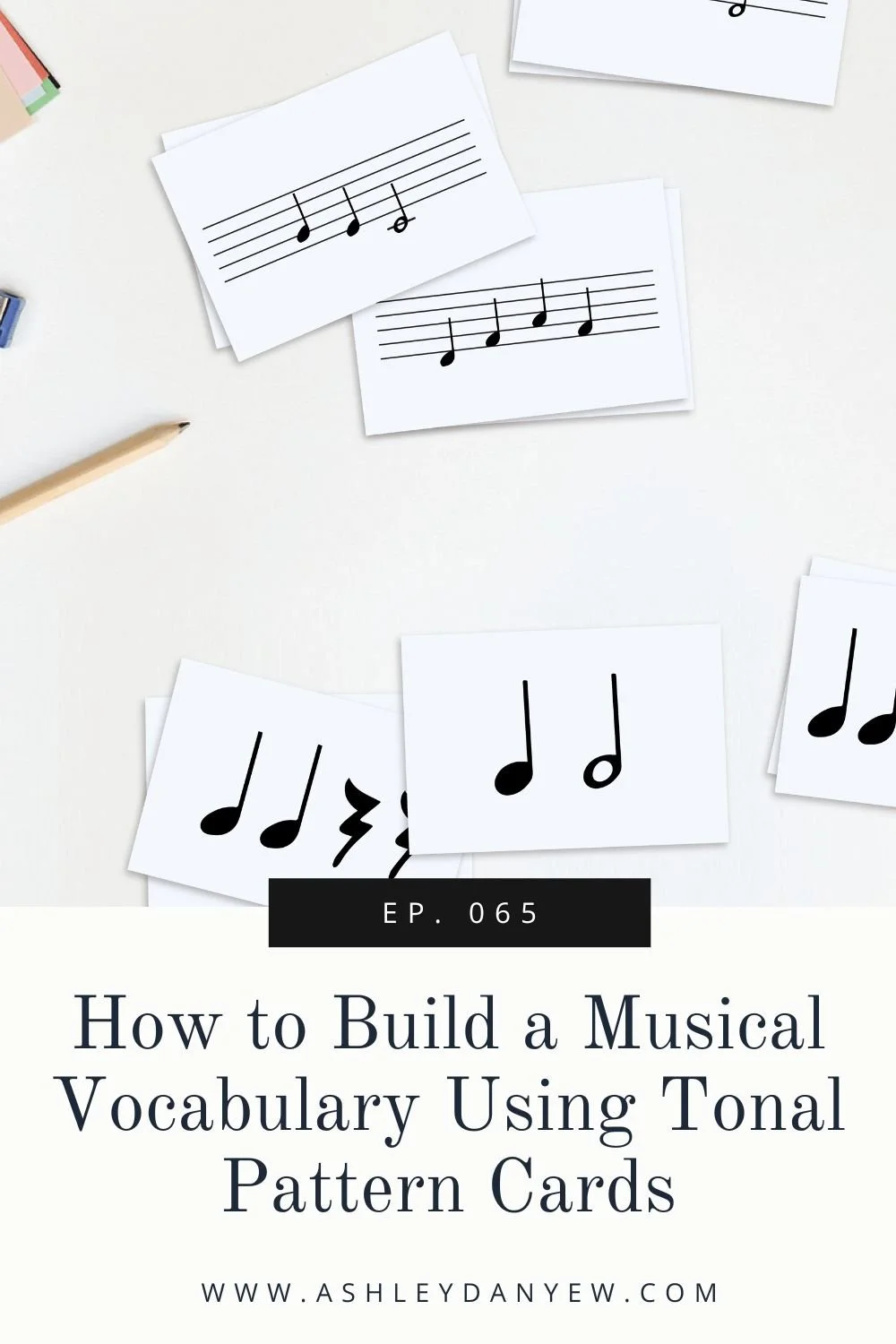Resources Mentioned
*Disclosure: some of the links in this episode are affiliate links, which means if you decide to purchase through any of them, I will earn a small commission. This helps support the podcast and allows me to continue creating free content. Thank you for your support!
The Gap and the Gain (Benjamin Hardy & Dan Sullivan)
Ep. 071 - 3 Things I Learned from Hosting a Musical Informance
Through the Windowpane (Chee-Hwa Tan)
Mindset: The New Psychology of Success (Carol Dweck)
Feel-Good Productivity: How to Do More of What Matters to You (Ali Abdaal)
Burnout: The Secret to Unlocking the Stress Cycle (Emily Nagoski & Amelia Nagoski)
Mindfulness for People with Voice Disorders - Body Scan (Catherine Brown)
It’s the middle of December, which means you’re probably caught up in the rush of holiday performances, concerts, and recitals, studio classes, parties, and general busyness as we wrap up the year. Your to-do list is long, but the days are short, and you’re doing your best to stay on top of it all.
But as busy as this time of year is, it can also be a time to pause and reflect. To embrace the quiet and stillness that comes with the first snowfall or sitting in the living room late at night or early in the morning by the light of the Christmas tree.
As a teacher, December is a time to acknowledge everything you’ve created and accomplished this year—everything you’ve learned and all the ways you’ve changed and grown and evolved as a musician and educator.
That’s what today’s episode is all about.
Because we can’t move forward into a new year until we fully acknowledge, accept, and learn from the experiences we had this year (good and bad). Benjamin Hardy and Dan Sullivan talk about this in their book, The Gap and the Gain. Have you read it?
It’s a short little book packed with some really powerful insights—perfect for the start of the new year. In fact, it’s our January pick for the Musician & Co. Book Club. You heard it here first! If you’d like to join me, go to www.musicianandcompany.com/books to sign up.
We read one book together each quarter on business, the creative process, music teaching, entrepreneurship, and being a musician. Sign up for free and you'll get my book picks each quarter, reading plans, and access to my private podcast.
Take 15 minutes with me today to step back from the busyness of the holidays and reflect, rest, and refresh your creativity, your goals, and your commitment to teaching. Let’s be intentional about how we end 2024 and how we step into 2025.
Reflect
I want to start today by thinking back on the year as a whole. I know I can sometimes feel caught up in the momentum of the school year and always looking forward to the next thing that I have to be really intentional about looking back and reflecting on how things went, my students’ progress, and my growth or evolution as a teacher.
Here are a few questions to think through:
5 Questions for Reflection
What was your proudest moment in teaching this year?
Which student made the most surprising progress, and what contributed to their success?
What was the biggest challenge you overcame this year?
What were three things that worked well and three things that didn’t work?
If you could relive one teaching moment this year, what would it be?
I’ll share a few of my reflections with you:
My proudest moment in teaching was hosting my first musical informances back in March—you heard me talk about that process here on the podcast. That was a highlight of my year.
Thinking about the student who made the most surprising progress—I’m thinking of a student who participated in Solo Festival for the first time this year. She has dyslexia and ADHD, so this was a big step. We chose a piece from Chee-Hwa Tan’s Through the Windowpane. The student took a—how should I say this?—a more relaxed approach to practicing than I would have preferred, which meant bursting into tears four weeks before saying she didn’t feel ready. But, we worked on it together, came up with a few memorization strategies, she committed to practicing every day at home, and she performed a few weeks later, from memory, earning a near-perfect score.
The biggest challenge I overcame this year was figuring out how to build in monthly studio classes. This felt like such a big organizational task and honestly, something that intimidated me as a teacher. The scheduling piece was complicated, but I’m glad I persisted. I’m teaching my third round of classes this week (five classes total this month) and it has been so rewarding.
Also, in case you missed it, be sure to listen to Ep. 077 where I talk all about the new approach I’m taking to teaching group classes this year.
Carol Dweck, pscyhologist, researcher, and author of the book Mindset, talks about the importance of cultivating a growth mindset. This means believing you are capable of overcoming something that challenges you because the growth of your intelligence is based on the effort that you put into it.
Spend some time thinking through these questions and reflecting on your answers. Remember, it’s important to reflect on the highs and lows of the year, your successes and failures to capture your full experience. What are the first things that come to mind?
If you like to journal, write out your answers or type them into a year-in-review document. Sometimes the act of writing these things down makes them even more meaningful.
Rest
I know, I know. Making time for rest this week? Impossible.
I’m right there with you: My week includes three studio classes, a street-wide holiday cookie swap, caroling, a holiday party, and preparations for the 104th annual neighborhood Christmas Eve event (I’m the chair of the committee).
The problem with rest is our relationship to it.
Author and productivity expert Ali Abdaal explains:
“For many of us, the challenge of rest lies in the act of stepping back from the things we think we should be doing. We’re conditioned to value self-control, grit and persistence. We equate rest with laziness, weakness or failure.” (source: Feel-Good Productivity)
But rest is essential to our health and wellbeing. According to scientific research (as cited in Burnout by Emily and Amelia Nagoski), the body and brain need about ten hours of rest out of every twenty-four. This can average out over a week or a month or more, but still. That’s a lot.
So what does rest really look like?
Doing something that inspires you: Going for a walk down your favorite street, visiting a museum, or spending 10-15 minutes playing your instrument for fun.
Doing something active: Exercise and physical activity can help you release tension, alleviate stress, and give your brain a rest.
Doing something intellectually or creatively stimulating: Reading that article you saved on your phone, flipping through a magazine or art book, or reading a chapter of a business or professional development book
Sometimes rest means acknowledging your capacity and saying “no” to something extra. And sometimes it means taking 5 minutes for yourself, especially at the beginning or end of the day.
3 Ways to Practice Rest in 5 Minutes Or Less
Here are three ways you can practice rest in just 5 minutes this week:
Breathing exercises: I like the 4-4 box breathing technique for stress relief. Breathe in through your nose for four counts, hold for four counts, then exhale through your mouth for 4 counts.
Mindfulness: The body scan is my favorite, especially the one by Catherine Brown specifically for people with voice disorders.
Creative activity: Take five minutes to write what’s on your mind or how you’re feeling or do a quick sketch of a recent photo you took or a scene in front of you.
The bottom line is how can you take care of yourself this season? How can you make time for inspiration and space for stillness?
Refresh
We’ve talked about reflection, we’ve talked about the importance of rest. The third action is a refresh—reinvigorating your creativity, reconnecting with your goals, and giving new strength and energy to your teaching practice.
Let me ask you this: If you could improve one area of your teaching next year, what would it be?
Maybe it’s adopting a slower pace in lessons so there’s more time for creativity or discovery. Maybe it’s being more present and spending less time writing assignment sheets. Maybe it’s a renewed focus on technique, gestures, or musical expression.
Remember, focus on the one thing you most want to improve. Keep it manageable and make it specific.
The point of this exercise is not to reflect on your shortcomings but instead, to evaluate where you are today and set an intention for where you want to go from here.
Benjamin Hardy and Dan Sullivan write:
“Happiness is not something you pursue. Happiness is not somewhere in the future. Decades of scientific research is clear on this point: happiness is where you start, not where you finish.”
Where are you starting? Again, if it helps to write out your answer, take a few minutes this week to do that.
Another question to consider is: What’s something new you want to try this year?
Maybe it’s adding monthly group classes to your list of studio offerings or integrating cross-disciplinary learning. Maybe it’s hosting your first musical informance or presenting a themed recital. Maybe it’s developing a studio-wide composition challenge or connecting with your greater community.
Treat this like an experiment. It’s something new you’re trying—no expectations. It’s okay if it doesn’t work the way you thought or if you encounter a few challenges along the way.
You don’t have to keep doing it forever. Instead, look at this as an opportunity to observe and study what happens. What went well? What would you change next time? What impact did it have on your students and their families? What did you learn from the experience?
Wrap-Up
As we wrap up today’s episode, I hope you’ll take a moment to be proud of everything you’ve accomplished this year. Look how far you’ve come! You’ve worked diligently, shown up for your students, and made a meaningful impact on their lives—and not just as musicians, but as people, community members, and future leaders.
Reflecting on the past year, taking time to rest, and refreshing your creativity and teaching skills is essential for staying motivated and sustaining your teaching practice. You deserve the time and space you need to breathe and consider what’s next.
So here’s my December challenge to you:
Choose one thing from today’s episode—a reflection question, a moment of rest, or a teaching goal—and put it into action this month. Let it be the starting point for closing this year with intention and stepping into the New Year with purpose.
I’d love to hear from you:
What’s one win from 2024 that you’re celebrating? And what’s one goal you’re setting for 2025? Send me a message on Instagram @ashleydanyew or reply to my latest email if you’re on my list. I’d love to feature some of your responses in an upcoming episode.
Remember: It’s okay to grow slow. Celebrate where you’ve been, dwell where you are, and anticipate where you’re going with joy and hope. Thank you for spending this time with me today. See you in the new year!



